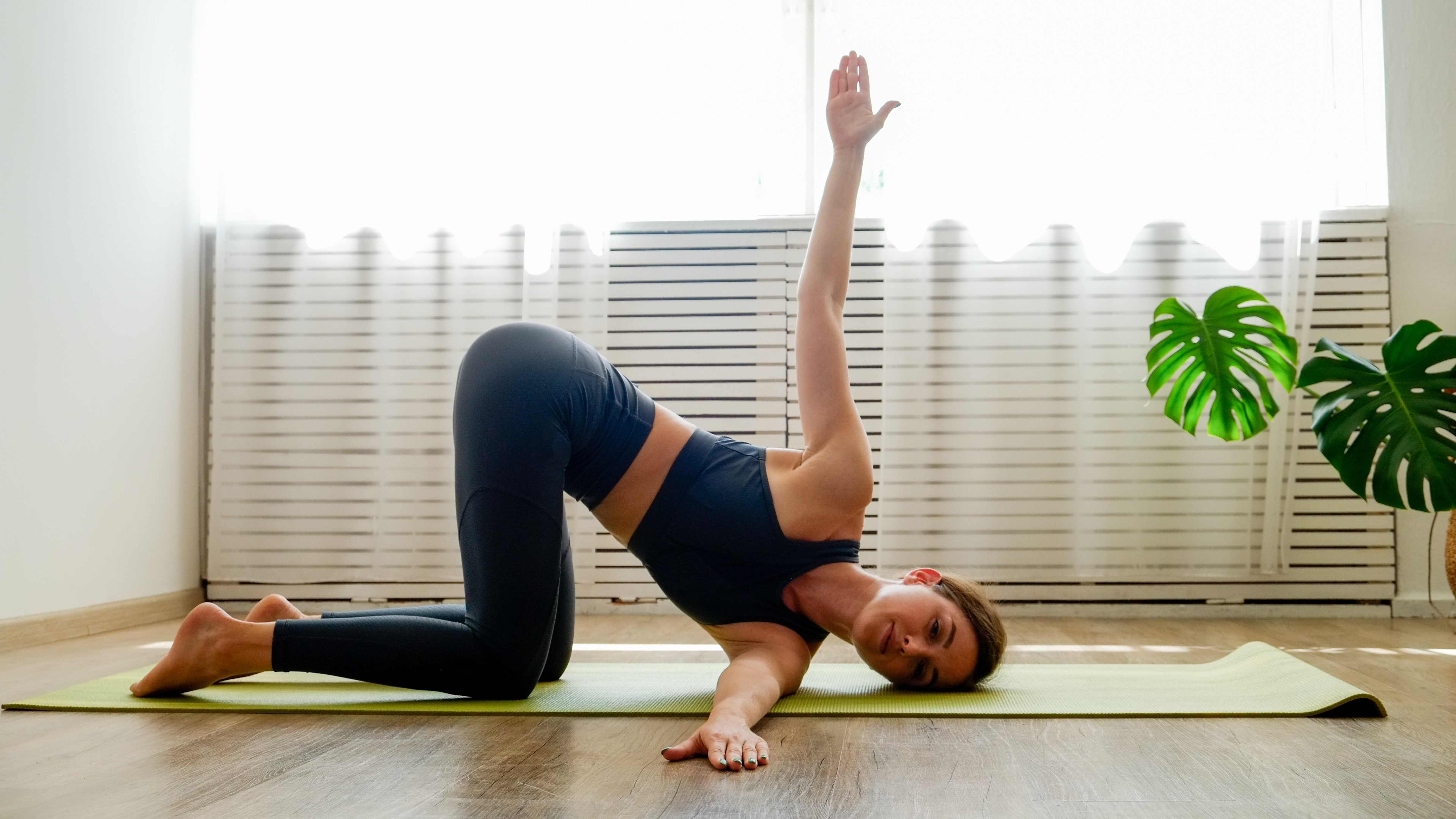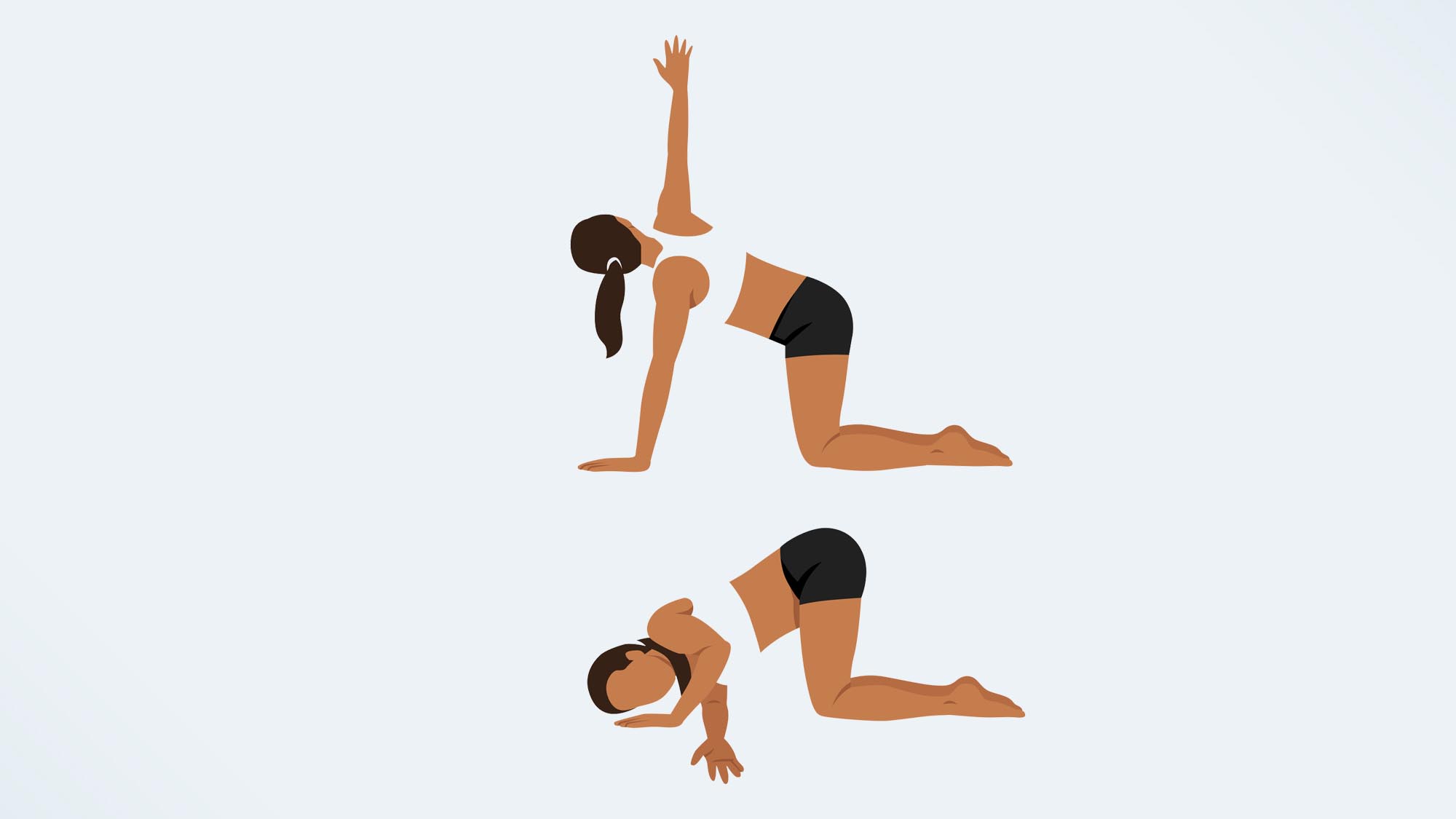
Here on the Tom’s Guide fitness desk, we love nothing more than throwing ourselves into intense week-long workout challenges — from trying a 7-minute pillar bridge plank every day to doing the 12-3-30 treadmill workout every day for a month. Yet all these workouts can take their toll. In an attempt to chill things out while recovering from tightness in my back, I tried this thread-the-needle exercise every day for a week, and it really helped.
Read on to find out more about the thread-the-needle exercise, including how to do it and what the benefits are.
What is the thread-the-needle exercise?
The thread-the-needle exercise is actually a deep stretch that targets the shoulders, chest, neck, and upper back. It allows for a light twist in the spine and can help relieve tension.
If you spend a lot of time sitting down behind your desk, or you play sports and don’t stretch an awful lot, you’ll probably have stiffness in your upper back and shoulders. This thread-the-needle stretch is one of the best ways to relieve it, and you won’t need to fork out on an expensive massage gun. (Though if you do want one, check out the best massage guns for recovery here.). Best of all, the thread-the-needle exercise only requires your body weight.
As well as being used as a stretch to relieve tension, the thread-the-needle stretch is also a great way to warm up for an upper-body workout. If you’re doing exercises like barbell presses or kettlebell swings, doing this move beforehand can help get your muscles warmed up before you add weight, reducing your risk of injury.
How to do the thread-the-needle stretch

Ready to get started? Here’s how to do the thread-the-needle stretch:
- You’ll want to use one of the best yoga mats for this one, or a softer surface to offer some comfort from the floor.
- Start on all fours in a tabletop position — make sure your knees are stacked underneath your hips, and your wrists are underneath your shoulders.
- Lift your right hand up to the ceiling, razing your gaze to the ceiling with it. Then, thread your right hand underneath your left arm, sinking down into the stretch, allowing your chest to reach down to the floor.
- Push your hips back, and keep pressing down with your left hand to avoid putting too much pressure on your neck.
- Hold the position for a few seconds, to a few minutes — as long as feels comfortable.
- To get out of the stretch, press your left hand down into the floor, and unthread your right arm, reversing the move and lifting your arm back to the sky, before lowering it back to your starting position.
- Repeat on the other side.
I did this exercise for a week — and it dramatically helped my back pain
So, what would happen if I added this simple exercise to my daily routine for a week? In a word, it was a game-changer. Here’s what I learned along the way:
The secret is moving slowly
It’s important to think of this one as a stretch, not an exercise designed to get your heart rate up. Even if you do the exercise as a dynamic warm-up, it’s important to move slowly, and with control. Moving too quickly means you might not achieve a deep stretch, or you might push yourself into a deep stretch too quickly and risk injury.
I started off by doing 30 seconds of thread-the-needle on each side. On other days, particularly after days where I hadn’t used my standing desk or had lifted weights in the gym, I’d extend this to a minute on each side. How long you hold the move depends on what feels good. As a warm-up before heading out for a run, I moved in and out of the stretch ten times, but still ensured I held the stretch part of the movement for a few seconds.
Be careful not to hold your breath
Like a yoga or Pilates class, following your breath during this exercise is important. Try and think about breathing in as you raise your arm to the ceiling, then breathing out as you lower into the stretch. Once you’re there, take some deep, slow breaths. Just make sure that you’re not holding your breath as your stretch.
Form is important
Halfway through the week, I performed the thread-the-needle stretch in front of the mirror as part of a warm-up and then a cool-down in the gym. I noticed I wasn’t sinking my hips back enough during the stretch. Almost like a child’s pose, your hips should sink back as you thread the arm underneath your body, to avoid putting too much pressure on your neck.
A week later, my shoulders felt less tense
Like many of us, I often suffer from tightness in my back, especially on days when I’ve spent too much time hunched over my laptop or iPhone. As a runner, having good posture is important to me — keeping my torso upright on the run can help me run faster, and more efficiently.
After a week of adding this stretch to my daily routine, my shoulders, neck, and upper back felt a lot more relaxed, and this is definitely something I’ll be using in my warm-ups going forward. Get up from your desk and give it a try — you’ll thank me later.






